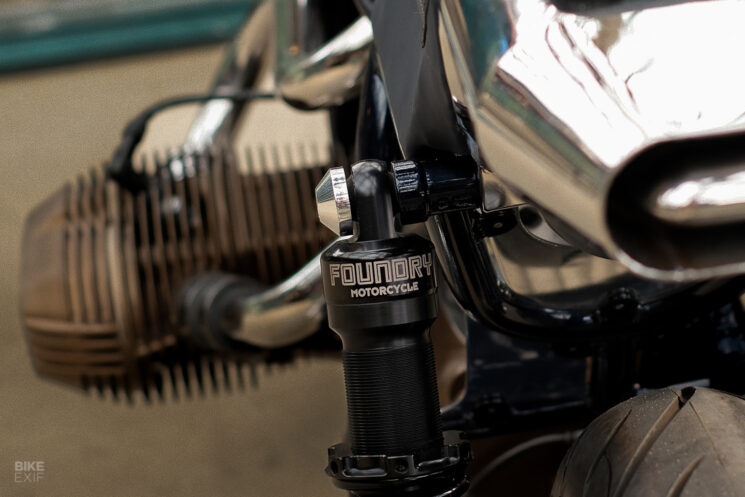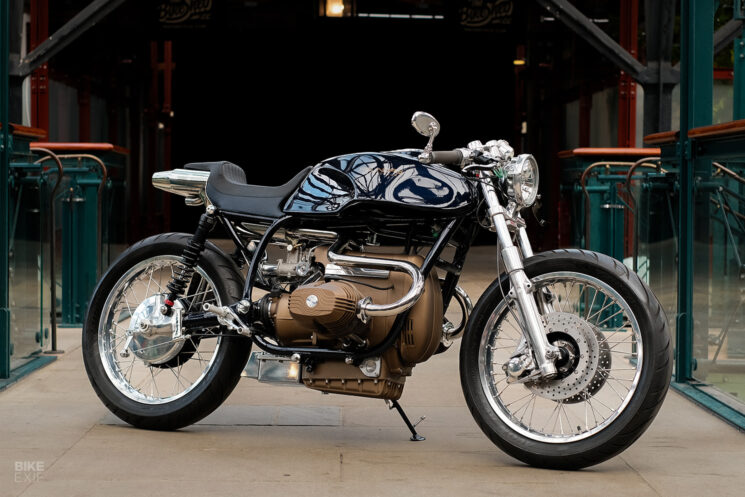
Elegance is a word easily ascribed to beautiful, often delicate, objects. But when you can assign it to a purposeful and muscular motorcycle, you know you’re looking at the work of a master craftsman. Tom Simpson of Foundry Motorcycle has certainly earned that accolade over the years, and this 1979 BMW R80 showcases the peak of his skill.
The path of this sublime machine, monikered ‘Midnight Racer,’ has been anything but serene though. A shop project over eight years in the making, the BMW R80 all too often found itself pushed to one side as client commissions took precedence. Then last year, with completion finally on the horizon, the build was interrupted once more.
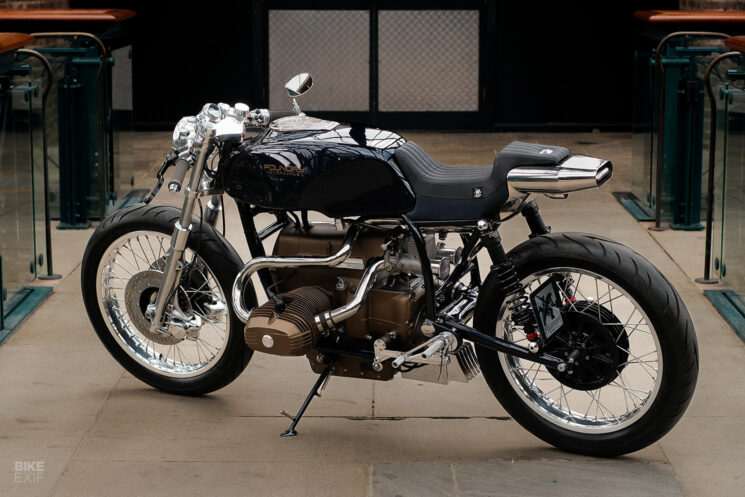
Tom was informed the rent on his den of over 12 years, was to increase by thirty percent overnight. With new digs to source, multiple project motorcycles, and an entire workshop’s worth of equipment to relocate, it’s fair to say that Midnight Racer has triumphed against adversity.
The actual genesis of the build stretches back even further, to when Tom offered the tank from a Moto Guzzi 1100 Sport to the frame of an ongoing airhead project. That machine would go on to become the Foundry ‘Silver Racer,’ a machine to which Midnight Racer owes significant lineage. But the ideas and lines sparked by the sight of that Italian tank sat atop the Bavarian frame persisted, and Tom needed another crack at it.
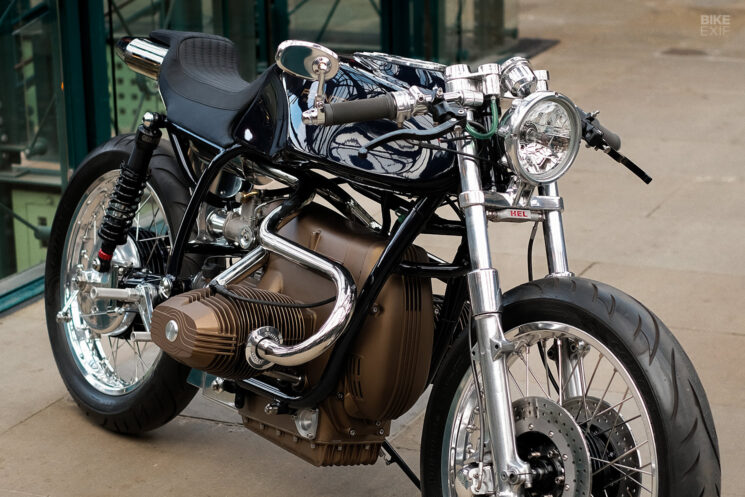
“Not to upset the purists, but the donor bike was immaculate,” Tom tells us, as he casts his mind back to the beginning of the project. He also assures us that all the stock bits he removed went to good homes; a mammoth task in itself, considering how little of the standard machine remains.
The first part that Tom set about, was that distinctly Jetsons-like exhaust. “I had an idea to make the exit look like a Jet turbine from the 1950s,” he explains. “And that’s the trouble with a shop project—once I’ve thought of doing something a certain way, I can’t not do it!”
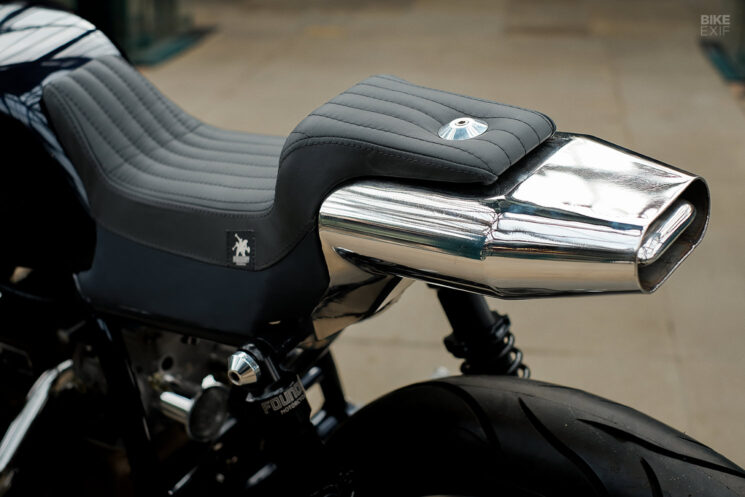
With the lines of the exhaust coming together, Tom returned to the Moto Guzzi fuel tank. Substantial reshaping was required to navigate the R80 frame, but plenty of space was also realized to accommodate and hide away all the electrical necessities.
With the significantly shallower side profile of the tank revealing far more of the boxer engine, Tom wanted to celebrate the motor by keeping the wiring as clean as possible. The reg/rec was relocated to the spine of the frame, while Dyna mini coils were hidden in the timing chest cover, from which four vents were milled out to help regulate heat. The result is an almost impossibly minimalist cabling configuration.
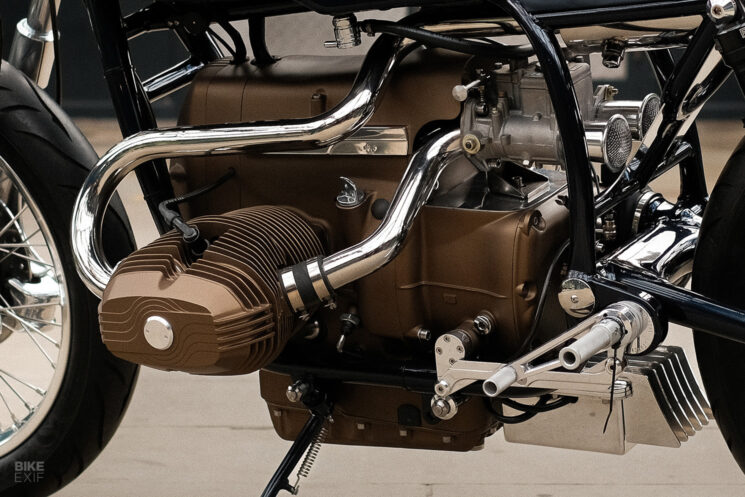
The unsightly rubber airbox that normally sits toward the back of the BMW R80 engine was also discarded. The top cover was then extended four inches to meet the Weber DCOE twin-choke carb, which sits proudly at the culmination of Tom’s custom intakes.
At the extremities of the engine, those gloriously Art Deco rocker covers were created by welding additional plates to the existing covers, before the flowing geometric lines were machined in. Smooth, top-hat-shaped pins lock down the covers in place of the standard nuts. A luxurious coat of bronze Cerakote covers the entire power unit.
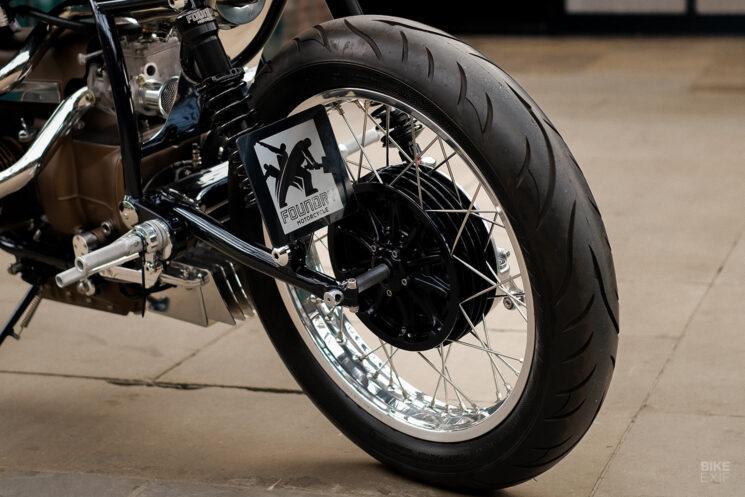
Moving outward, Tom shortened and polished the forks, before calling Rich Chanter at Wheels in Motion to lace 19” Morad rims to the freshly painted hubs. At the rear, Tom tips his hat to one of his favorite builds, the Lucky Cat Sprint Beemer, as the inspiration for the hub’s machined-out triangles—the brake shoes and polished springs peeking between the breaks in the midnight blue. (That hue, present throughout the machine, has become something of a Foundry signature, finding its way onto multiple builds in recent years.)
The cast headlight is all Tom’s handiwork. As his shop name suggests, Tom previously worked as a blacksmith, and forging his own parts is an ever-present aspect of his builds. But having run out of scrap to smelt, Tom needed a new source. Now, when he visits his preferred suspension partner, Quantum Suspension, he leaves with the contents of their aluminum scrap bin, along with his springs of choice.
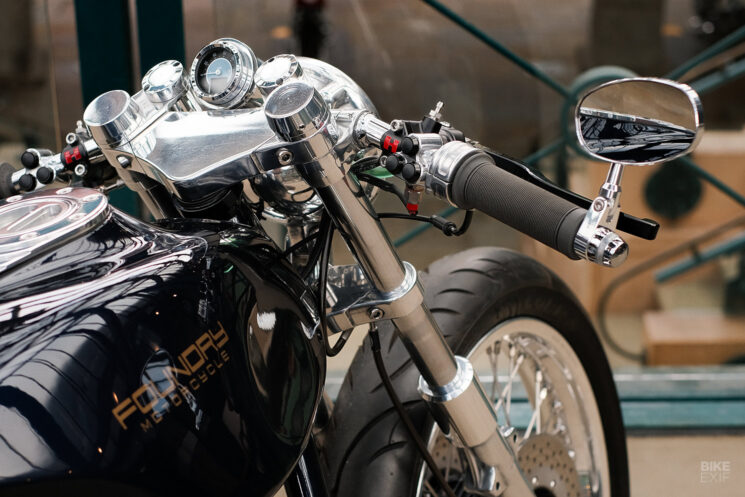
The fat, clean yokes were made to Tom’s design, perfectly complementing the fork-mounted remote reservoirs for the Hel Performance braking upgrades. While at it, Tom converted the rear brake to cable over rod actuation, rebuilt the gearbox, and converted the clutch to hydraulic (a task he casually describes as “good fun”).
The Tarozzi adjustable clip-ons and foot controls are amongst Tom’s favorite off-the-shelf parts, which he then, predictably, modifies further. The rearsets mount into eccentric adjusters within the frame, allowing for a 360-degree rotation of positions. At a lofty 6’4”, Tom appreciates more than most the aches of an ill-fitting machine, and prefers to provide a rider triangle that’s tailorable to all body types.
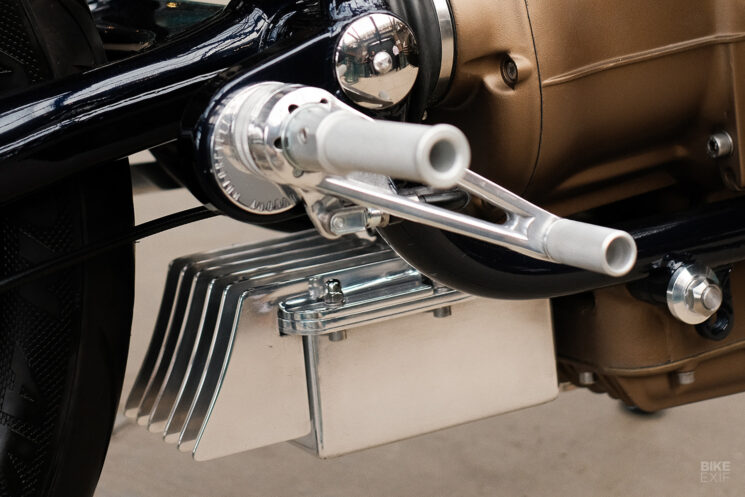
Nestled between and behind those footrests you will notice more avant-garde design. The finned battery box was inspired by the underbody diffusers of high-performance race cars, translated with Foundry’s signature style.
And what a signature style it is. Like the finest in the game, Foundry creates an aesthetic you could attribute to their shop even if all logos were obscured from view. It’s a heady mix of mid-century and art-deco cues, mixed with a retro-futuristic vibe—and Midnight Racer wears it well.
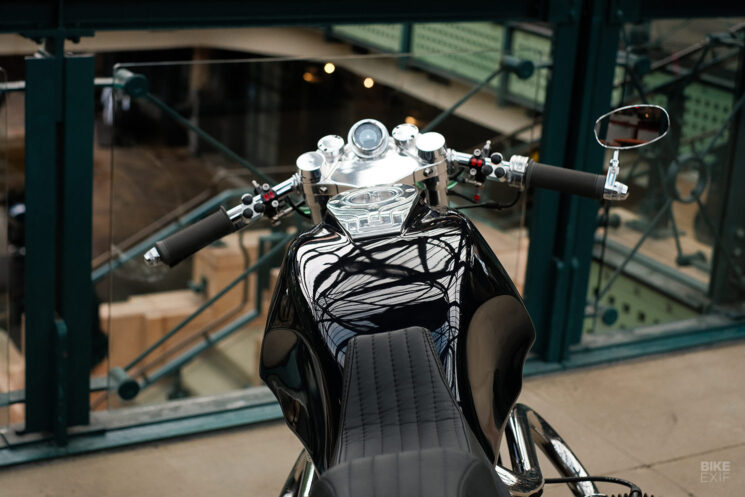
Tom had one last hurdle to jump over before his BMW R80 finally made its debut at this year’s Bike Shed Show. He notes, with a shake of his head, how the fuel filler cap was still a solid block of material less than 24 hours before the doors were set to open. But after eight long years in the making, the final push was well worth it.
It’s yet another stunning machine from the Foundry workshop—which will be opening to the public from its new location very soon.
Foundry Motorcycle | Facebook | Instagram | Images by Thomas Kettlety
